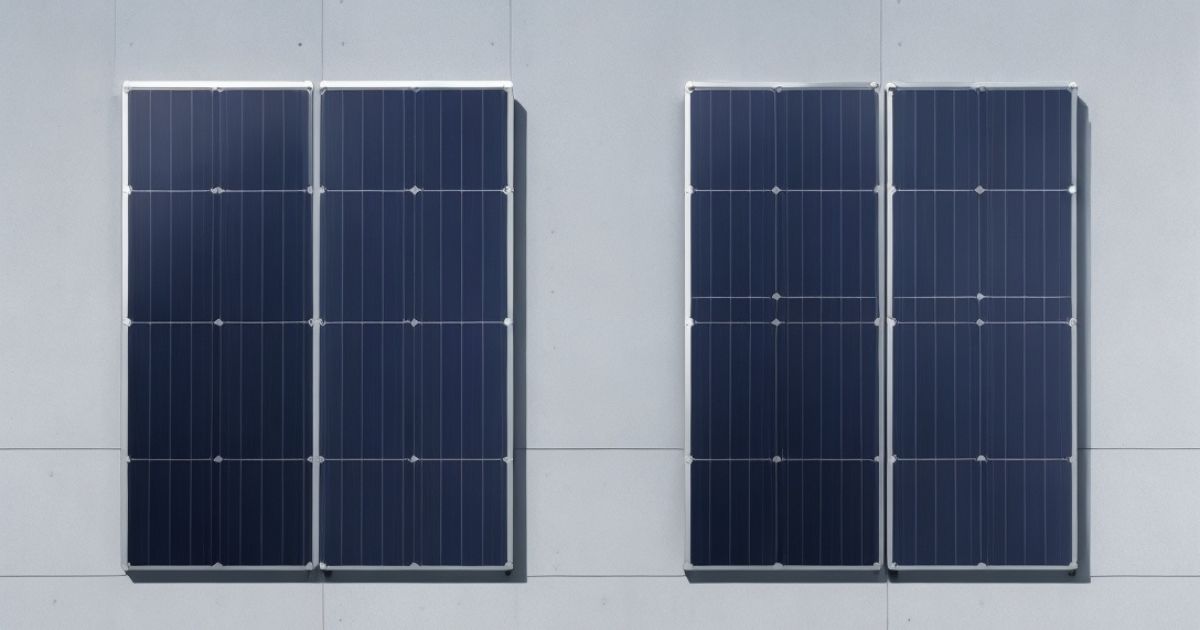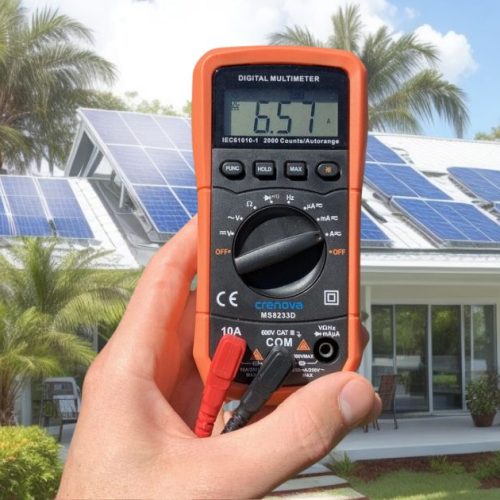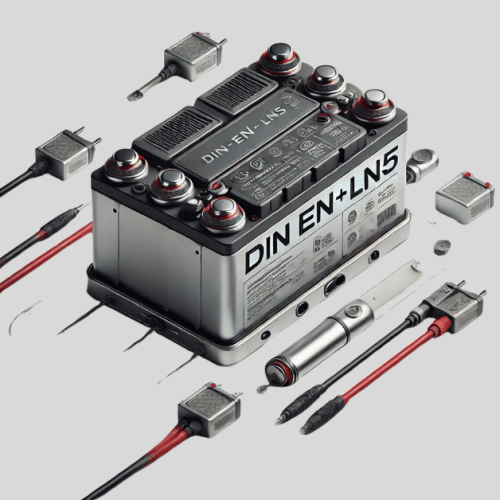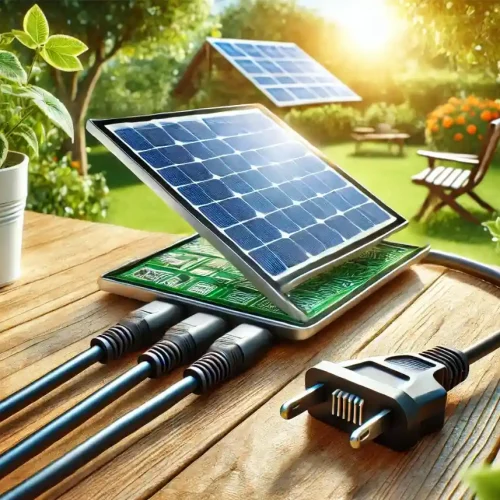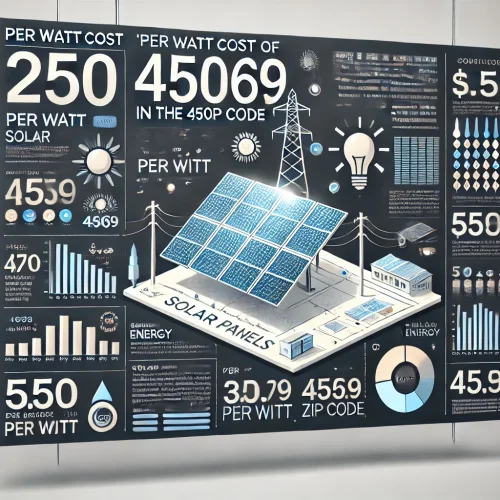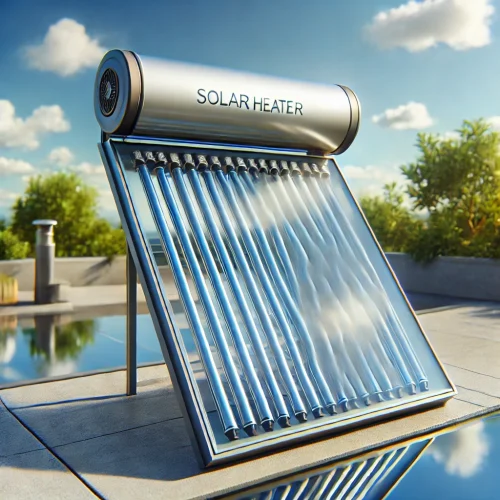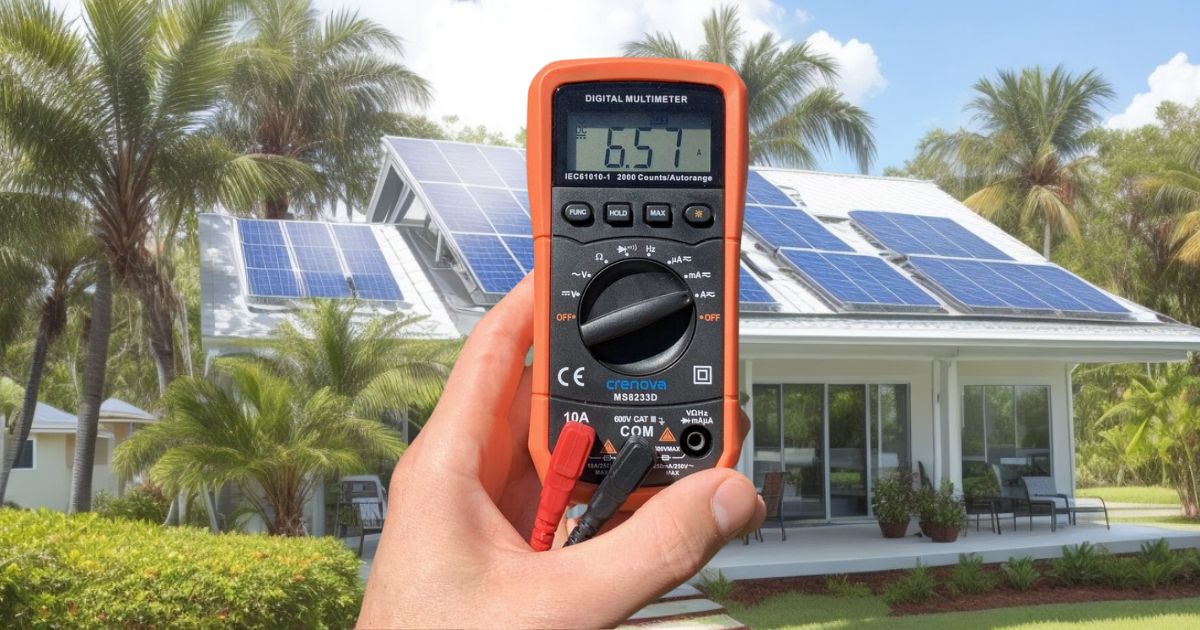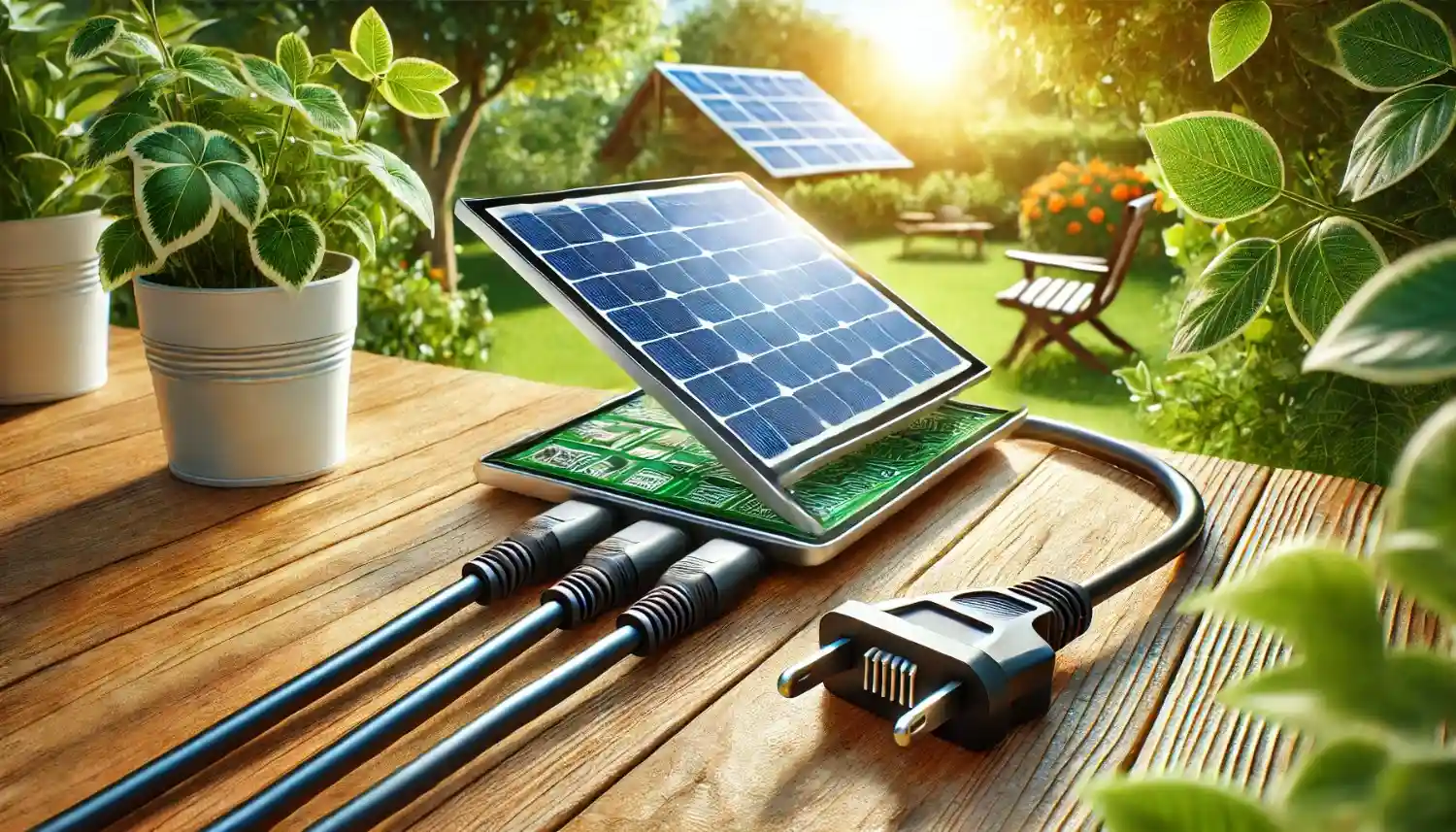Yes, a 100 watt solar panel can run a refrigerator. A 100-watt solar panel has the ability to power a refrigerator efficiently, making it a perfect option for off-grid or remote locations where power supply is limited or unavailable.
Solar panels convert sunlight into electricity, which can be stored in batteries for later use. By connecting the solar panel to a battery, the stored energy can be used to power a refrigerator, ensuring the preservation of food and other perishable items.
This sustainable and environmentally friendly solution allows for independence from traditional energy sources and reduces dependence on fossil fuels. Additionally, the use of solar power can save costs in the long run, making it a viable option for both residential and commercial applications.

Understanding Solar Panels
When it comes to solar panels, understanding how they work and their power output is essential, especially when considering using them to run appliances like refrigerators. In this blog post, we’ll discuss the intricacies of solar panels, focusing on the question: Can a 100 watt solar panel run a refrigerator? Let’s start by understanding how solar panels work.
How Solar Panels Work
Solar panels work by harnessing the sun’s energy through photovoltaic cells, which convert sunlight into electricity. Here’s a breakdown of how solar panels work:
- Sunlight hits the solar panels, causing the photovoltaic cells to generate direct current (DC) electricity.
- The DC electricity is then passed through an inverter, where it is converted into alternating current (AC) electricity, suitable for powering household appliances.
- This electricity can either be used immediately, stored in a battery for later use, or fed back into the grid in a net metering system.
Power Output Of Solar Panels
The power output of solar panels is measured in watts and is affected by factors such as sunlight intensity, sunlight angle, and panel efficiency. It is important to note the following about the power output of solar panels:
- The power output of a solar panel is usually specified at standard test conditions (STC), which are standard laboratory settings. In real-world situations, the actual power output may vary.
- A 100 watt solar panel, under optimal conditions, can produce about 100 watts of power per hour. However, this output can fluctuate throughout the day based on the availability of sunlight.
- When considering running a refrigerator, it is crucial to evaluate the energy consumption of the refrigerator and the daily energy production of the solar panels to ensure compatibility.

Power Consumption Of A Refrigerator
Can a 100 watt solar panel run a refrigerator? This question often arises when considering alternative energy sources to power household appliances. To understand whether a 100 watt solar panel is sufficient, it is important to delve into the power consumption of a refrigerator.
Factors Affecting Power Consumption
A refrigerator’s energy consumption is affected by several factors, including:
Size and type of refrigerator: Larger refrigerators consume more energy than smaller ones. Additionally, certain types, such as side-by-side or French door models, may require more power.
Energy Efficiency Rating: Refrigerators with higher energy efficiency ratings consume less energy. Look for models with the ENERGY STAR label, as they are designed to save energy
Temperature settings: Lower temperature settings require more energy to maintain, resulting in higher energy consumption.
Frequency of door opening: Every time the refrigerator door is opened, cool air escapes and the appliance has to work harder to restore the desired temperature. Frequent door opening can increase electricity consumption.
Location and ambient temperature: If the refrigerator is placed in a warm or poorly ventilated area, it may have to work harder to cool its contents, resulting in higher energy consumption.

Average Power Consumption Of A Refrigerator
The average energy consumption of a refrigerator varies depending on its size, efficiency and usage. As a general guideline, most refrigerators use about 100 to 400 watts of power. However, it is important to note that this is an average value, and individual models may differ.
Here is a table showing the average power consumption of different refrigerator sizes:
| Refrigerator Size | Average Power Consumption (Watts) |
|---|---|
| Mini Fridge | 50-100 |
| Compact Fridge | 80-150 |
| Medium-Sized Fridge | 100-200 |
| Large Fridge | 200-400 |
Considering average power consumption, a 100 watt solar panel may be able to run a mini fridge or compact fridge efficiently. However, this may not be enough for larger refrigerators that use more energy. It is essential to evaluate the specific power requirements of your refrigerator before deciding on the suitability of a 100 watt solar panel.

Calculating Power Requirements
When considering whether a 100-watt solar panel can run a refrigerator, it is essential to understand the power requirements to operate a refrigerator and the performance of solar panels. Calculating power demand and considering solar panel efficiency are important steps in determining the feasibility of using a 100-watt solar panel to power a refrigerator.
Determining Power Needed To Run A Refrigerator
A refrigerator requires a certain amount of energy to run, which can be calculated based on its energy consumption. Typically, a refrigerator’s energy consumption is measured in watts per hour. To determine the power required, follow these steps:
- Locate the refrigerator’s wattage rating, usually found on the manufacturer’s label.
- Consider daily average usage in hours, which can vary based on factors such as ambient temperature and usage patterns.
- Multiply the refrigerator’s wattage by the average daily usage to calculate the total daily energy consumption in watt-hours.
Considering Solar Panel Efficiency
When evaluating whether a 100-watt solar panel can run a refrigerator, it is crucial to consider the efficiency of the solar panel. Solar panel efficiency refers to the amount of sunlight the panel can convert into electricity. Factors such as panel orientation, tilt angle, and local climate can affect its performance. To determine if a 100-watt solar panel is enough to power a refrigerator, consider the following:
- Evaluate the average hours of daily sunlight at the location where the solar panels will be installed.
- Potential damage is caused due to shade, soil, or system inefficiency.
- Calculate the daily energy production of the solar panel based on the efficiency of the solar panel and the available sunlight.

Limitations Of A 100 Watt Solar Panel
When considering whether a 100 watt solar panel can power a refrigerator, it is important to understand the limitations of such a setup. Although it is possible to power a refrigerator with a 100 watt solar panel, there are factors that can affect its efficiency and effectiveness.
Matching Power Output And Consumption
One of the key limitations of using a 100 watt solar panel to run a refrigerator is ensuring that the power output matches the energy consumption of the appliance. Refrigerators generally require high energy consumption, especially during the startup cycle. This can lead to challenges in maintaining a consistent power supply from just a 100 watt solar panel.
- Refrigerators have different energy requirements based on size and efficiency.
- Energy-efficient refrigerators may be more suitable for use with 100-watt solar panels.
- Consider the refrigerator’s energy consumption over a 24-hour period to assess compatibility.
Impact Of Weather Conditions
Weather conditions play an important role in the performance of a 100 watt solar panel powered by a refrigerator. Factors such as sunlight intensity, duration of exposure to sunlight, and seasonal variations can affect the panel’s ability to generate enough energy to sustain refrigerator operation.
- Cloudy days or limited sunlight can reduce the effectiveness of solar panels.
- Seasonal adjustments with shorter daylight hours may be required.
- Consider geographic location and climate when relying on solar power for refrigerators.
Battery Storage Capacity
Battery storage capacity is another important aspect to consider when using a 100 watt solar panel to run a refrigerator. Adequate battery storage is essential to store excess energy generated by solar panels for use during periods of low sunlight or high energy demand from the refrigerator.
| Battery Capacity | Impact on Operation |
|---|---|
| Insufficient storage | This may lead to power shortages and the inability to sustain refrigerator operations. |
| Optimal storage capacity | Ensures continuous power supply and smoother operation. |
| Excess storage | Offers a buffer for extended periods of low sunlight or increased energy consumption. |
Alternative Solutions
In the case of powering a refrigerator using a 100-watt solar panel, alternative solutions can be considered. These solutions include using multiple solar panels, adding battery storage, and optimizing refrigerator efficiency.
Using Multiple Solar Panels
If you want to power your refrigerator using solar panels, you may want to consider using multiple solar panels. The number of panels you need will depend on the power requirements of your refrigerator. You need to make sure that the solar panels are properly connected and wired in series or parallel to increase the voltage or amperage. You can use a charge controller to control the power output from the solar panel and prevent battery overcharging.
Adding Battery Storage
Another way to power your refrigerator using a 100-watt solar panel is to add battery storage. You can use deep cycle batteries to store energy generated by solar panels during the day and use it to power the refrigerator at night or when there is no sunlight. You need to make sure that the battery capacity is sufficient to power the refrigerator for the required time. You can also use an inverter to convert the DC power from the battery to the AC power required by the refrigerator.
Optimizing Refrigerator Efficiency
Optimizing the efficiency of your refrigerator can help you power it using a 100-watt solar panel. You may consider downsizing your refrigerator to reduce electricity consumption. You can make sure the refrigerator is well insulated to prevent heat loss. You can also use a refrigerator with a DC compressor as it is more efficient than a refrigerator with an AC compressor. Additionally, you can control the temperature of your refrigerator so it doesn’t get too cold, which can increase energy consumption.
In conclusion, powering a refrigerator using 100-watt solar panels can be challenging, but alternative solutions such as using multiple solar panels, adding battery storage, and optimizing the refrigerator’s efficiency can help you achieve this. However, you need to make sure that your refrigerator’s power requirements are not too high and that you have enough battery capacity and solar panels to power it.
Cost Considerations
When considering the use of a 100-watt solar panel to run a refrigerator, it’s essential to factor in the associated costs. Understanding the expenses involved will help in making an informed decision about the feasibility of this setup. Let’s delve into the cost considerations of using a 100-watt solar panel to power a refrigerator.
Cost Of Solar Panels
Investing in solar panels for running a refrigerator involves several cost factors. Typically, the cost of a 100-watt solar panel ranges from $100 to $200, depending on the brand and efficiency. Additionally, the number of panels required will depend on the refrigerator’s power consumption and the geographical location to optimize sunlight exposure. Other considerations impacting the cost include the type of solar panel (monocrystalline, polycrystalline, or thin-film) and any potential government incentives or rebates for solar installations.
Additional Equipment And Installation
Aside from the solar panels, additional equipment such as a charge controller, batteries, and an inverter will be necessary for an off-grid refrigerator setup. The cost of these components can range from $500 to $2000, depending on the quality and capacity required. Furthermore, professional installation may be needed, incurring additional costs. It’s important to consider the expenses associated with the installation process, including any wiring, mounting hardware, and labor costs.
Long-term Savings
While there are initial costs associated with setting up a solar panel system for a refrigerator, the long-term savings can be significant. By harnessing solar energy, homeowners can reduce their reliance on the grid, leading to lower utility bills and potential savings in the long run. Additionally, with advancements in solar technology and decreasing equipment costs, the return on investment for solar panel installations continues to improve, making it a financially viable and environmentally sustainable option in the long term.

Frequently Asked Questions
How Many 100 Watt Solar Panels Does It Take To Run A Refrigerator?
To run a refrigerator, you typically need 3 to 4 100-watt solar panels.
How Much Solar Power Do I Need For A Refrigerator?
To power a refrigerator with solar, you generally need 1-2 kW solar panels and a battery storage system.
What Will A 100 Watt Solar Panel Run?
A 100 watt solar panel can run small appliances like lights, phone chargers, or small fans.
What Size Solar Panel Do I Need To Run A Car Fridge?
To run a car fridge, you’ll need a solar panel with at least 100-200 watts capacity.
Conclusion
To summarize, a 100 Watt solar panel can run a refrigerator, but it may have limitations. It is important to consider the power consumption of your specific refrigerator model and the availability of sunlight in your location. Additionally, using an efficient battery storage system can help optimize the performance of your solar panel.
It is recommended to consult with a solar power expert to determine the ideal number of solar panels for your refrigerator’s needs.
